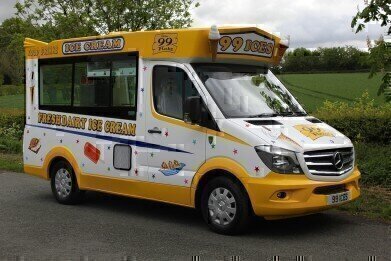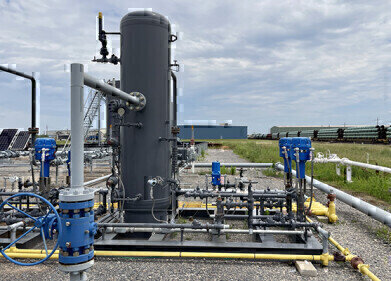Air Clean Up
Why Is London Banning Ice Cream Vans?
May 07 2019
Camden Council has become the first authority in London to prohibit ice cream vans from selling their wares on its local streets. At the beginning of the month, local authorities installed “No Ice Cream Trading” signs on 40 different streets in the borough, signalling the first time that the practice has been formally outlawed in the UK capital.
A spokesperson for the council said that the measure was just one of many ways in which it was trying to improve air quality and reduce transport-related pollution. The vans, which are often powered by diesel motors, are guilty of emitting black carbon into the atmosphere. The substance has been linked with inhibiting the growth of children’s lungs and exacerbating asthma attacks.
Drastic measures
The announcement represents the first time that a London authority has banned ice cream vans from operating on its streets in history. Once a popular phenomenon which were omnipresent in towns, cities and villages all across Britain, ice cream vans have come under increased scrutiny in recent years due to fears over air pollution. Today, the number of active vans in the country stands at an estimated 2,500 - a mere fraction of what it once was.
“No one wants to be the fun police or see people lose their businesses, but people don’t want a side order of asthma with their ice cream. This is a serious health issue,” explained Caroline Russell, Green Party member of the London Assembly. “The ULEZ charge has helped but we can’t have a situation where you can pay to pollute. The roaming vans that trade in different streets every day, those will disappear over the next few years.”
Idling on its way out
While pollution control measures are already in place in the affected areas, ice cream vans are generally exempt from rules around idling given that they need to keep their engines running in order to power the freezers which store their produce. However, as advances in technology have allowed us to better understand the damage wrought on our atmosphere by diesel engines and black carbon in particular, the authorities have moved to eliminate idling altogether.
“There is going to be consultation this year about developing five areas in the borough where ice cream trading will be permitted throughout the day,” said a spokesperson for the council. “We will be coming from a perspective that the engines must be switched off, but details need to be worked through.” One option could be to encourage the uptake of electric vehicles (EVs) and provide charging points for places where the vans visit most frequently.
A frosty reception
While environmentalists have welcomed the news, the ban has been met with a backlash from the ice cream selling community. At least one vendor has indicated that he intends to flout the ban and simply pay the daily penalty of £90, rather than giving up on the profession that has sustained him and his family for years.
“We are only going out onto the streets six months a year - some only four - and we are the ones polluting Camden? If they want clear up Camden’s pollution, then they should pedestrianize the whole area. We are going to have to keep going out and paying the £90. I do not have a choice. This is my bread and butter.”
Events
Apr 18 2024 Shanghai, China
Apr 22 2024 Hannover, Germany
Apr 23 2024 Kuala Lumpur, Malaysia
Apr 24 2024 Sao Paulo, Brasil
May 05 2024 Seville, Spain














